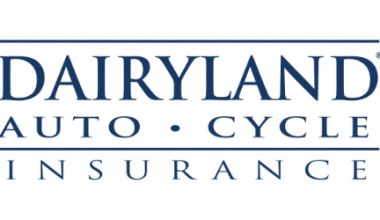Purchasing life insurance policies can be quick and simple. Not sure where to begin-whether term or permanent life insurance? We’ll help you through the entire process, allowing you to compare life insurance rates among companies and select the best policy for you and your family.
What is Life Insurance?
A life insurance policy is a legally binding agreement between you and insurance companies. The insurer pays out money after you die in exchange for recurring payments known as premiums. This payment is made to the people you designate as beneficiaries, who are typically children, a spouse, or other family members. It can be a valuable safety net if somebody financially relies on you. Beneficiaries can use the proceeds to pay off debts, replace lost income, or cover future obligations such as college tuition.
Types of Life Insurance
There are numerous types of life insurance available to satisfy a wide range of needs and preferences. The major decision of whether to get temporary or permanent life insurance is vital to consider depending on the individual to be insured’s short- or long-term needs.
#1. Term life Insurance policy
Term life insurance covers you for a set number of years and then expires. When you purchase the policy, you select the term. The most common terms are 10, 20, and 30 years. The finest term life insurance policies strike a mix between affordability and long-term financial stability.
- Decreasing Term Life Insurance: A decreasing term policy is renewable term life insurance in which coverage decreases at a specified rate over the life of the policy.
- Convertible Term Life Insurance: With convertible term life insurance, policyholders can convert a term policy to permanent insurance.
- Renewable Term Life Insurance: This is an annually renewable term life policy that gives a quote for the policy year in which it is purchased. Premiums increase on an annual basis, and it is typically the least expensive term insurance at the outset.
#2. Permanent Life Insurance
Unless the policyholder stops paying premiums or surrenders the policy, permanent life insurance remains in force for the insured’s whole life. Typically, it is more expensive than term.
- Whole Life: Whole life insurance is a type of permanent life insurance that accumulates cash value. Cash-value life insurance allows the policyholder to use the cash value for a variety of purposes, including obtaining loans or cash or paying policy premiums.
- Universal Life: This is a type of permanent life insurance with a cash value component that earns interest, universal life has adjustable premiums. Unlike term and whole life, premiums can be adjusted over time, and the policy can be constructed with a fixed or increasing death benefit.
- Indexed Universal: This is a type of universal life insurance in which the policyholder can earn a set or equity-indexed rate of return on the cash value component.
- Variable universal life insurance: This allows the policyholder to invest the policy’s cash value in an available separate account. It also includes adjustable premiums and can be arranged with a fixed or growing death benefit.
Burial or final cost insurance is a type of permanent life insurance with a minimal death payout. Regardless of the names, recipients are free to spend the death benefit anyway they see suitable.
Top-Rated Life Insurance Companies to Compare
| Company | AM Best Rating | Coverage Capacity | Issue Ages | Policies Offered |
| Prudential Best Overall | A+ | Not Stated | 18-75 | Term, variable, and universal |
| State Farm Best Instant Issue | A++ | Not Stated | 18-75 | Term, whole, and universal |
| Transamerica Best Value | A | Not Stated | 18-80 | Term, whole, universal, and final expense |
| Northwestern Mutual Best Whole Life | A++ | Not Stated | 0-80 | Term, whole, and universal |
| New York Life Best Term Policies | A++ | $5,000,000 and up | 0-90 | Term, whole, and universal |
| Mutual of Omaha Best for No Medical Exams | A+ | $100,000 and up (term life) | 0-85 | Term, whole, universal, children’s, and accidental death |
| USAA Best for Military | A++ | $10,000,000 | 0-85 | Term and permanent |
Read Also: List of Fortune 1000 Companies in 2021, Updated!!! (How to Invest Guide)
Permanent vs Term Life Insurance
Term life insurance differs from permanent life insurance in numerous aspects, but it tends to satisfy the needs of the majority of individuals the best. The term life insurance is only valid for a limited time and pays a death benefit if the insured dies before the term expires. Permanent life insurance remains in force as long as the insured continues to pay the premium. Another significant distinction is in premiums—term life is often far less expensive than permanent life insurance because it does not require the accumulation of capital value.
Before applying for life insurance, you should assess your financial condition and establish how much money is needed to sustain your beneficiaries’ level of living or to meet the purpose for which you are acquiring a policy.
For example, if you are the primary caregiver and have two children aged two and four, you would want enough insurance to cover your custodial responsibilities until your children reach the age of majority and are able to support themselves. You may look into the expense of hiring a nanny and a cleaner, as well as the cost of using commercial child care and cleaning service, and then add some money for education. In your life insurance estimate, include any outstanding mortgages and retirement needs for your spouse. Especially if the spouse is a stay-at-home parent or earns much less. Add together these payments over the next 16 years, plus inflation, and that’s the death benefit you might wish to buy—if you can afford it.
How Much Life Insurance Should You Get?
The cost of life insurance premiums can be influenced by a variety of factors. Certain factors may be beyond your control, but other factors can be handled to potentially reduce the cost before applying.
If your health has improved and you’ve made positive lifestyle adjustments since being approved for an insurance policy, you can request a change in risk class. Even if it is discovered that you are in worse condition than when you were underwritten, your premiums will not be raised. If you are deemed to be in better health, your premiums will be reduced.
STEP #1 – Figure Out How Much You Need
Consider what expenses would need to be met in the event of your death. Mortgage, college tuition, and other debts, not to mention funeral fees, are examples of such obligations. Furthermore, income replacement is important if your spouse or loved ones require cash flow and are unable to offer it on their own.
There are internet tools that can help you calculate the lump payment that will cover any prospective charges.
What Affects Your Life Insurance Premiums and Costs?
STEP #2: Complete Your Application
- Age: This is the most essential component since life expectancy is the most important indicator of risk for the insurance companies.
- Gender: Because women live longer lives on average, they pay lower rates than men of the same age.
- Smoking: Tobacco use puts a person at risk for a variety of health problems that can shorten one’s life and raise risk-based insurance premiums.
- Health: Most policies include medical exams to screen for health issues such as heart disease, diabetes, and cancer, as well as other medical metrics that can suggest risk.
- Lifestyle: Dangerous lifestyles can drive up premiums significantly.
- Family medical history: If you have a history of significant sickness in your immediate family, you are at a substantially higher risk of having specific conditions.
- Driving record: A history of moving infractions or drunk driving can significantly raise insurance prices.
Guide to Purchasing Life Insurance
Personal and family medical histories, as well as beneficiary information, are typically required on life insurance applications. You will also most likely be required to undergo a medical checkup and declare any preexisting medical conditions, history of moving infractions or DUIs, as well as any dangerous hobbies such as motor racing or skydiving.
Standard kinds of identification, such as your Social Security card, driver’s license, and/or U.S. passport, will also be required before a policy may be written.
STEP #3 – Compare policy Quotes
After you’ve gathered all of the relevant information, you can obtain numerous estimates from various suppliers based on your research. Prices might vary significantly from company to company, so it’s critical to make an attempt to locate the greatest mix of policy, company rating, and premium cost. Because life insurance is something you will most likely pay for on a monthly basis for decades, finding the ideal policy to match your needs can save you a significant amount of money.
Who Needs Life Insurance?
After the death of an insured policyholder, life insurance offers financial support to surviving dependents or other beneficiaries. Here are some persons who may require life insurance:
- Parents with minor children—if a parent dies, the loss of their income or caregiving skills may result in financial difficulties. Life insurance can ensure that the children have the financial resources they require until they are able to support themselves.
- Parents with special-needs adult children—life insurance can ensure that their children’s requirements are covered after their parents die if they require everlasting care and will never be self-sufficient. The death benefit can be used to fund a special needs trust, which will be managed by a fiduciary for the benefit of the adult child.
- Adults who own property together—married or not—life insurance may be a good idea if the death of one adult would mean that the other could no longer afford loan payments, upkeep, and taxes on the property. An engaged pair, for example, might take out a joint mortgage to buy their first home.
- Seniors who desire to leave money to adult children who care for them—many adult children give up time at work to care for an aging parent who requires assistance. This assistance may also offer direct financial assistance. When a parent dies, life insurance can help pay for the adult child’s expenses.
- Young adults whose parents have committed private student loan debt or cosigned a loan for them—young adults without dependents rarely require life insurance, but if a parent will be liable for a child’s debt after their death, the child may choose to carry enough life insurance to pay off that debt.
Read Also: HOMEOWNERS INSURANCE: Companies, Quotes and Buying Guide.
- Children and young people who want to lock in cheap rates—the younger and healthier you are, the lower your insurance costs. A 20-something adult may purchase a policy even if he or she does not expect to have dependents in the near future.
- Stay-at-home spouses should obtain life insurance since they have significant economic worth based on the work they conduct at home. According to Pay.com, the economic value of a stay-at-home parent in 2018 would have been similar to a $162,581 annual salary.
- Wealthy families that expect to face estate taxes—life insurance can give funds to meet the taxes while keeping the estate’s full worth intact.
- Families who cannot afford burial and funeral expenses—a small life insurance policy can offer funding to commemorate a loved one’s death.
- Businesses with key employees—If the death of a key person, such as a CEO, would cause a significant financial hardship for a company, that company may have an insurable interest that allows it to obtain a life insurance policy on that individual.
- Married pensioners—rather than having to pick between a pension payout that includes a spousal benefit and one that does not, retirees can accept their entire pension and utilize some of the money to purchase life insurance for their spouse. This is known as pension maximization.
- Those who have pre-existing conditions including cancer, diabetes, or smoking. It should be noted, however, that certain insurers may refuse to cover such individuals or demand exorbitant prices.
Considerations to Make Before Purchasing Life Insurance
Investigate policy options and companies reviews—Because life insurance policies are a significant expense and commitment, it’s critical to conduct proper due diligence to ensure the company you choose has a solid track record and financial strength, especially given that your heirs may not receive any death benefit for many decades into the future.
Life insurance can be a wise financial instrument for hedging your chances and providing security for your loved ones in the event of your death while the policy is in effect. However, there are some cases where it makes less sense, such as overspending or insuring those whose income does not need to be replaced. As a result, it is critical to consider the following:
What costs would be unaffordable if you died? If your partner makes a good living and you don’t have any children, it may not be necessary. It is still crucial to examine the impact of your potential death on your spouse and how much financial help they would require to grieve without having to worry about returning to work before they are ready.
However, if both spouses’ income is required to maintain a chosen lifestyle or satisfy financial obligations, both spouses may require individual life insurance coverage.
How Does Life Insurance Work?
A death benefit and a premium are the two major components of a life insurance policy. These two components are present in term life insurance, but permanent or whole life insurance policies also have a cash value component.
#1. Death Benefit
The death benefit, also known as face value, is the amount of money guaranteed by the life insurance companies to the beneficiaries named in the policy when the insured dies. For example, the insured could be a parent, and the beneficiaries could be their children. The insured will select the appropriate death benefit amount based on the expected future needs of the beneficiaries. Based on the business’s underwriting rules for age, health, and any hazardous activities in which the proposed insured participates, the life insurance companies will decide if there is an insurable interest and whether the proposed insured qualifies for coverage.
#2. Premiums
Premiums are the fees paid by policyholders for insurance. When the insured dies, the insurer must pay the death benefit if the policyholder pays the requisite premiums, and premiums are decided in part by how likely it is that the insurer will have to pay the policy’s death benefit based on the insured’s life expectancy. Age, gender, medical history, work dangers, and high-risk hobbies are all factors that influence life expectancy. A portion of the premium is also used to cover the insurance company’s running costs. Premiums are greater for policies with larger death benefits, for people who are more at risk, and for permanent policies that accrue cash value.
#3. Cash Value
The cash value of permanent life insurance serves two functions. It is a savings account that the policyholder can access throughout the insured’s life; the cash builds tax-deferred. Withdrawals may be restricted under some policies depending on how the money is to be utilized. For example, the policyholder may take out a loan against the cash value of the policy and be required to pay interest on the loan principal. The cash value can also be used to pay premiums or acquire additional insurance. The cash value is a living benefit that the life insurance companies retain after the policyholder dies. Any outstanding debts against the cash value will lower the death benefit of the policy.
The policy owner and the insured are normally the same people, however, this is not always the case. For example, companies may purchase key person insurance on a critical employee such as the CEO, or an insured may sell their own policy to a third party for cash in a life settlement.
Life Insurance Riders and Policies Modifications
Many insurance firms allow policyholders to tailor their policies to meet their specific requirements. Riders are the most popular technique for policyholders to update or modify their plans. There are a lot of riders, however, availability is determined by the provider. The policyholder will normally pay an additional premium or a cost to exercise the rider, while certain riders are included in the base premium of some policies.
- The accidental death benefit rider adds additional life insurance coverage if the insured dies in an accident.
- If the insured becomes disabled and unable to work, the waiver of premium rider relieves the policyholder of paying premium payments.
- In the event that the policyholder is unable to work for several months or longer owing to a serious sickness or injury, the disability income rider pays a monthly income.
- When a terminal illness is diagnosed, the expedited death benefit rider allows the insured to claim a portion or the entire death benefit.
- The long-term care rider is a type of accelerated death benefit that can be used to pay for nursing-home, assisted-dwelling, or in-home care when the insured needs assistance with daily living tasks such as showering, eating, and using the toilet.
- A guaranteed insurability rider allows the policyholder to purchase additional insurance at a later date without having to undergo a medical exam.
Borrowing Money
Most permanent life insurance policies accumulate cash value, which the policyholder can use to borrow money. You are technically borrowing money from the life insurance companies and using your cash value as collateral. Unlike other types of loans, the policyholder’s credit score is not taken into account. The loan repayment terms are variable, and the loan interest is credited to the policyholder’s cash value account. Policy loans, on the other hand, can lower the death benefit of the policies.
Each policy is unique to both the insured and the insurer. It’s critical to read your policy copy to understand what risks your policy covers, how much your beneficiaries will receive, and under what conditions.
Retirement Income
Life insurance policies with a cash value or an investment component might provide a source of retirement income. This opportunity may come with hefty costs and a reduced death benefit, so it may be best suited for people who have exhausted all other tax-advantaged savings and investing accounts. Another method life insurance can fund retirement is through the pension maximization strategy discussed previously.
It’s a good idea to reassess your life insurance needs once a year or follow important life events like divorce, marriage, the birth or adoption of a child, or substantial expenditures like a house. You may need to change the beneficiaries on your policy, raise your coverage, or even decrease your coverage.
Life Insurance Eligibility
Insurers analyze each life insurance applicant on an individual basis, and with hundreds of insurers to choose from, practically everyone can find an affordable policy that satisfies at least some of their criteria. According to the Insurance Information Institute, there were 841 life insurance and annuity businesses in the United States in 2018.
Furthermore, many life insurance firms sell a variety of policy types and sizes, and others specialize in satisfying specific needs, such as policies for persons with chronic health conditions. There are also brokers who specialize in life insurance and are familiar with the various firms’ offerings. Applicants can work for free with a broker to find the insurance they require. This means that practically everybody may obtain some type of life insurance policy if they look hard enough and are ready to pay a high enough premium or accept a less-than-ideal death payout.
Insurance is not just for the wealthy and healthy, and because the insurance market is far larger than many customers know, buying life insurance may be doable and cheap even if past applications have been declined or bids have been prohibitive.
In general, the younger you are and the healthier you are, the easier it is to qualify for life insurance, and the older you are and the less healthy you are, the more difficult it is. Certain lifestyle choices, such as smoking or participating in risky hobbies such as skydiving, also make it more difficult to qualify or result in higher premiums.
What are the Benefits of having Life Insurance?
- Payouts are tax-free—because death benefits are not considered income for recipients, they are paid in a lump sum and are not subject to federal income tax.
- Dependents do not have to worry about living expenditures—most policy calculators propose a multiple of your gross income equal to seven to ten years, which may cover key obligations like as mortgages and college tuition without requiring the surviving spouse or children to take out loans.
- Funeral expenses can be covered—funeral fees can be substantial and can be avoided with a burial policy or regular term or permanent life insurance policies.
- Policies can supplement retirement savings—permanent life policies, such as whole, universal, and variable life insurance, can provide cash value in addition to death benefits, which can supplement other retirement assets.
Life Insurance Companies Reviews
Company | Rating |
| AAA Life Insurance | 3.4 |
| AARP Life Insurance | – |
| AFLAC Life Insurance | – |
| AIG Life Insurance | 3.6 |
| Allstate Life Insurance | 4.5 |
| American Fidelity Life | – |
| American Income Life | – |
| Ameritas Life Insurance | – |
| Assurity Life Insurance | – |
| Bankers Life Insurance | 3.4 |
| Banner Life Insurance | 3.4 |
| Bestow Life Insurance | 3.3 |
| Brighthouse Life Insurance | 3.2 |
| CMFG Life Insurance | 3.7 |
| Colonial Penn Life Insurance | 3.2 |
| Continental Life Insurance | – |
| CUNA Mutual Life | – |
| Ethos Life Insurance | 3.1 |
| Family First Life Insurance | – |
| Fidelity Life Insurance | 3.2 |
| Foresters Life Insurance | – |
| Freedom Life Insurance | 2.9 |
| GEICO Life Insurance | 3.7 |
| Genworth Life Insurance | – |
| Gerber Life Insurance | 3.2 |
| Globe Life | 2.6 |
| Guardian Life Insurance | 3.7 |
| Haven Life Insurance | – |
| Jackson National Life | – |
| John Hancock Life | 3.9 |
| Kemper Life Insurance | – |
| Ladder Life Insurance | – |
| Liberty Mutual Life | – |
| Lincoln Heritage Life | 3.6 |
| Lumico Life Insurance | – |
| Manhattan Life Insurance | – |
| Mass Mutual Life Insurance | 3.9 |
| Max Life Insurance | – |
| MetLife Life Insurance | 3.2 |
| Midland National Life | 4.7 |
| Mutual of Omaha Life | 4 |
| National Life Group | – |
| Nationwide Life Insurance | 4.7 |
| Navy Federal Life Insurance | – |
| NEA Life Insurance Company | – |
| New York Life | 4.2 |
| North American Life | – |
| Northwestern Mutual Life | 4.1 |
| Oxford Life Insurance Company | – |
| Pacific Life Insurance | – |
| Primerica Life Insurance | 3.1 |
| Protective Life Insurance | 3.8 |
| Prudential Life Insurance | 3.8 |
| Securian Life Insurance | – |
| SelectQuote Life Insurance | – |
| State Farm Life Insurance | 4 |
| Texas Life Insurance | – |
| Transamerica Life Insurance | 3.9 |
| TruStage Life Insurance | – |
| Unum Life Insurance | – |
| USAA Life Insurance | 3.4 |
| VA Life Insurance | – |
| Zander Life Insurance | – |
Can I buy life insurance if I have a pre-existing medical condition?
Yes, it is possible to buy life insurance if you have a pre-existing medical condition, although the premium may be higher.
What is the difference between term life insurance and permanent life insurance?
Term life insurance provides coverage for a specified term, while permanent life insurance provides lifelong coverage. Term life insurance is usually less expensive, but does not build cash value, while permanent life insurance is more expensive but provides a cash value component.
What is the underwriting process for life insurance?
The underwriting process for life insurance involves a review of the policyholder’s medical history, lifestyle, and other factors to determine their risk level and the premium to be charged.
Can I buy life insurance online?
Of course, it is possible to buy life insurance online, although it is recommended to work with an insurance agent to ensure that you have the right coverage for your needs.
Life Insurance FAQs
Can a person have two life insurance policies?
Having numerous life insurance policies is entirely viable – and legal. In addition to their individual term life or permanent life insurance policy, many people have life insurance coverage through their employment. However, there are advantages to owning more than two life insurance policies.
What is the basic life insurance?
Basic life insurance is a straightforward life insurance policy that is frequently included as part of a company’s benefits package, alongside group health insurance, paid time off, and other perks. Companies frequently provide basic life insurance to their employees for free or at a low cost.
Can you get life insurance on your parents without them knowing?
When applying for life insurance, the individual whose life will be insured must sign the application and provide consent. So the answer is no, you cannot obtain life insurance on someone without first informing them; they must consent to it.
Related Articles
- AD and D Insurance: Definition, Benefits, Coverage, & Payouts
- A Quick Guide to Life Insurance For New Parents
- Industrial Insurance: Definition and Detailed Explanation
- BUSINESS PROPERTY INSURANCE: Cost & Benefits Of Property Insurance
- IMMIGRATION TO CANADA FROM THE USA: All you should know
- h WHOLE VS TERM LIFE INSURANCE: Which is Better?






